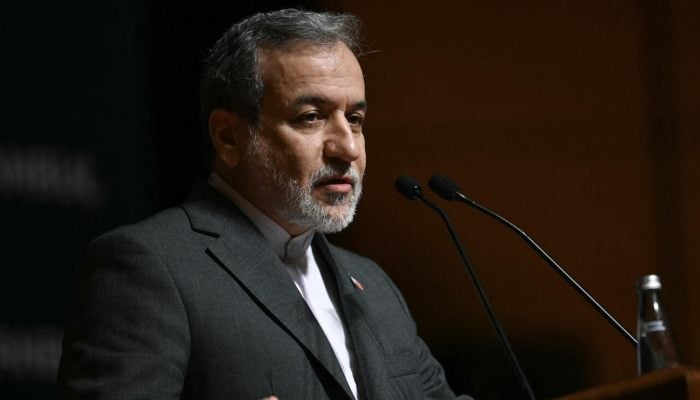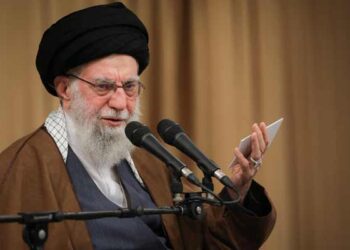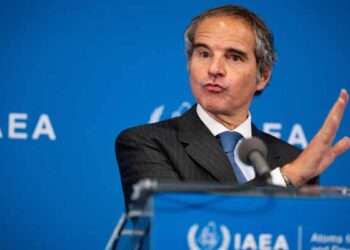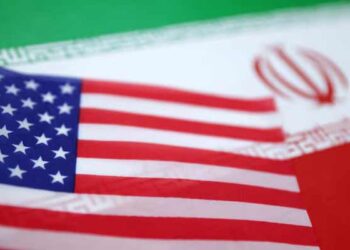Select Language:
TEHRAN: Iran’s Foreign Minister, Abbas Araghchi, stated that the country has no intention of abandoning its nuclear program, including uranium enrichment, despite the significant damage inflicted on its facilities by U.S. strikes. This announcement comes as talks with European nations are set to resume.
Iran is poised to engage in discussions with Britain, France, and Germany in Istanbul on Friday, amid accusations from Tehran that these European powers have undermined the 2015 nuclear agreement.
This meeting marks the first set of discussions since last month’s 12-day conflict with Israel, during which the U.S. targeted Iran’s nuclear sites.
“For the moment, enrichment is halted due to the serious damage,” Araghchi remarked in an interview with Fox News‘ “Special Report with Bret Baier” on Monday. “However, we cannot forsake enrichment, as it represents a significant achievement of our scientists and our national pride.”
U.S. President Donald Trump chimed in on the matter, commenting on his platform Truth Social that the U.S. would retaliate if required.
The 2015 accord was established between Iran and the five permanent members of the UN Security Council—Britain, China, France, Russia, and the United States—along with Germany. It aimed to limit Iran’s nuclear activities in exchange for the lifting of sanctions. However, the deal began to unravel in 2018 when the U.S., under Trump’s administration, exited the agreement and reinstated extensive sanctions.
While Europe has assured ongoing support, a mechanism intended to mitigate U.S. sanctions never fully developed, prompting many Western businesses to withdraw from Iran and exacerbating its economic struggles.
“Iran holds European parties accountable for their failure to implement the agreement,” said Foreign Ministry spokesman Esmaeil Baqaei prior to Friday’s discussions regarding the deal’s future.
Additionally, Iran is set to hold a trilateral meeting with officials from China and Russia on Tuesday to address nuclear issues and potential sanctions. The Chinese Foreign Ministry has expressed its intention to facilitate dialogue and negotiations that take into account all parties’ legitimate concerns.
In recent weeks, the three European nations have warned of the possibility of reinstating international sanctions against Tehran, accusing it of not adhering to its nuclear commitments. Germany stated that the Istanbul discussions would be conducted at the expert level, with the European trio, referred to as the E3, making a significant effort to reach a sustainable and verifiable diplomatic resolution.
“Should no agreement be reached by the end of August, the snapback option remains on the table,” indicated Martin Giese, a spokesman for Germany’s Foreign Ministry. A clause in the 2015 agreement enables the UN to reinstate sanctions on Iran through a “snapback” procedure if the country is found to be non-compliant.
However, as the agreement is set to expire in October, the clock is ticking.
“No Plans for Talks with the U.S.”
The International Atomic Energy Agency reported that Iran is the only non-nuclear-armed state currently enriching uranium to 60%—a level far exceeding the 3.67% limit established by the 2015 accord. This level is dangerously close to the 90% enrichment required for a nuclear weapon.
Baqaei labeled the potential use of the snapback clause as “meaningless, unjustifiable, and immoral,” asserting that Iran’s reduced commitments were a response to the West’s failure to uphold the agreement.
“Iran’s scaling back of its commitments was conducted according to the terms set forth in the agreement,” he said.
Western powers, particularly the United States and Israel, have long accused Iran of secretly striving for nuclear armament, an allegation Iran has consistently rebuffed, asserting that its nuclear aspirations are strictly for peaceful purposes, such as energy production.
Following five rounds of negotiations that began in April, a meeting scheduled for June 15 was scrapped after Israeli strikes on Iran triggered a 12-day escalation of conflict.
“At this point, we have no plans to engage in discussions with the U.S.,” Baqaei stated on Monday.
On June 13, Israel launched unexpected strikes aimed at critical military and nuclear facilities in Iran. Subsequently, the U.S. executed its own attacks against Iran’s nuclear infrastructure on June 22, targeting uranium enrichment sites in Fordo, as well as locations in Isfahan and Natanz.







